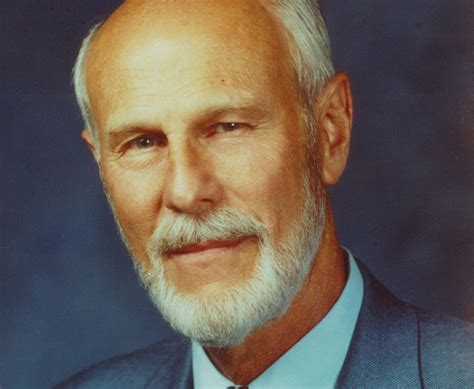A Quote by Alister E. McGrath
For Calvin, the creation reflects its Creator at every point. Image after images flashed in front of our eyes, as Calvin attempts to convey the multiplicity of ways in which the creation witnesses to its Creator: it is like a visible garment, which the invisible God dons in order to make himself known; it is like a book in which the name on the Creator is written as its author; it is like a theater, in which the glory of God is publicly displayed; it is like a mirror, in which the works and wisdom of God are reflected.
Related Quotes
To reverence the impersonal creation instead of the personal God who created us is a perversion designed for escaping moral accountability to the Creator. God indicts those who worship the creation instead of its Creator (Rom 1:18-23); and warns of the corruption of morals and behavior which results.
Geometry, which before the origin of things was coeternal with the divine mind and is God himself (for what could there be in God which would not be God himself?), supplied God with patterns for the creation of the world, and passed over to Man along with the image of God; and was not in fact taken in through the eyes.
Is a Christian- one who communicates daily with the Creator- to divorce himself from the things God created and intended man to have, and which demonstrate the fact that man has been made in the image of God? In other words, are we who have been made in the image of our creator to be less creative than those who do not know the Creator? The Christian should have more vividly expressed creativity in his daily life.
Those who, animal-like, live solely according to the senses... misuse God's creation in order to indulge the passions. They do not understand the principle of that wisdom which is revealed to all: that we should know and praise God through His creation and that by means of the visible world we should understand whence we came, what we are, for what purpose we were made and where we are going. On the contrary, they travel through this present age in darkness... with... ignorance of God.
Now, which am I to believe, a book that any impostor might make and call the Word of God, or the creation itself which none but an Almighty Power could make? For the Bible says one thing; and the creation says the contrary. The Bible represents God with all the passions of a mortal, and the creation proclaims him with all the attributes of a God.
All our language about the future ... is like a set of signposts pointing into a bright mist ... the New Testament image of the future hope of the whole cosmos, grounded in the resurrection of Jesus, gives as coherent a picture as we need or could have of the future that is promised to the whole world, a future in which, under the sovereign and wise rule of the creator God, decay and death will be done away with and a new creation born, to which the present one will stand as mother to child.
Certain I am that every author who has written a book with earnest forethought and fondly cherished designs will bear testimony to the fact that much which he meant to convey has never been guessed at in any review of his work; and many a delicate beauty of thought, on which he principally valued himself, remains, like the statue of Isis, an image of truth from which no hand lifts the veil.
You have heaven adorned, earth beautified, the sea populated with its own creatures, the air filled with birds which scour it in every direction. Studious listener, think of all these creations which God has drawn out of nothing; . . . recognize everywhere the wisdom of God; never cease to wonder, and, through every creature, to glorify the Creator.
The images were gone, but Calvin was there, was with her, was part of her. She had moved beyond knowing him in sensory images to that place which is beyond images. Now she was kything Calvin, not red hair, or freckles, or eager blue eyes, or the glowing smile; nor was she hearing the deep voice with the occasional treble cracking; not any of this, but - Calvin. She was with Calvin, kything with every atom of her being, returning to him all the fortitude and endurance and hope which he had given her.
At the center of our being is a point of nothingness which is untouched by illusion, a point of pure truth, a point or spark which belongs entirely to God, which is never at our disposal, from which God disposes of our life, which is inaccessable to the fantasies of our own mind or the brutalities of our own will. This little point of nothingness and of absolute poverty is the pure glory of God in us.
The fundamental idea which defines a human being as a Muslim is the declaration of faith: that there is a creator, whom we call God - or Allah, in Arabic - and that the creator is one and single. And we declare this faith by the declaration of faith, where we... bear witness that there is no God but God.





































